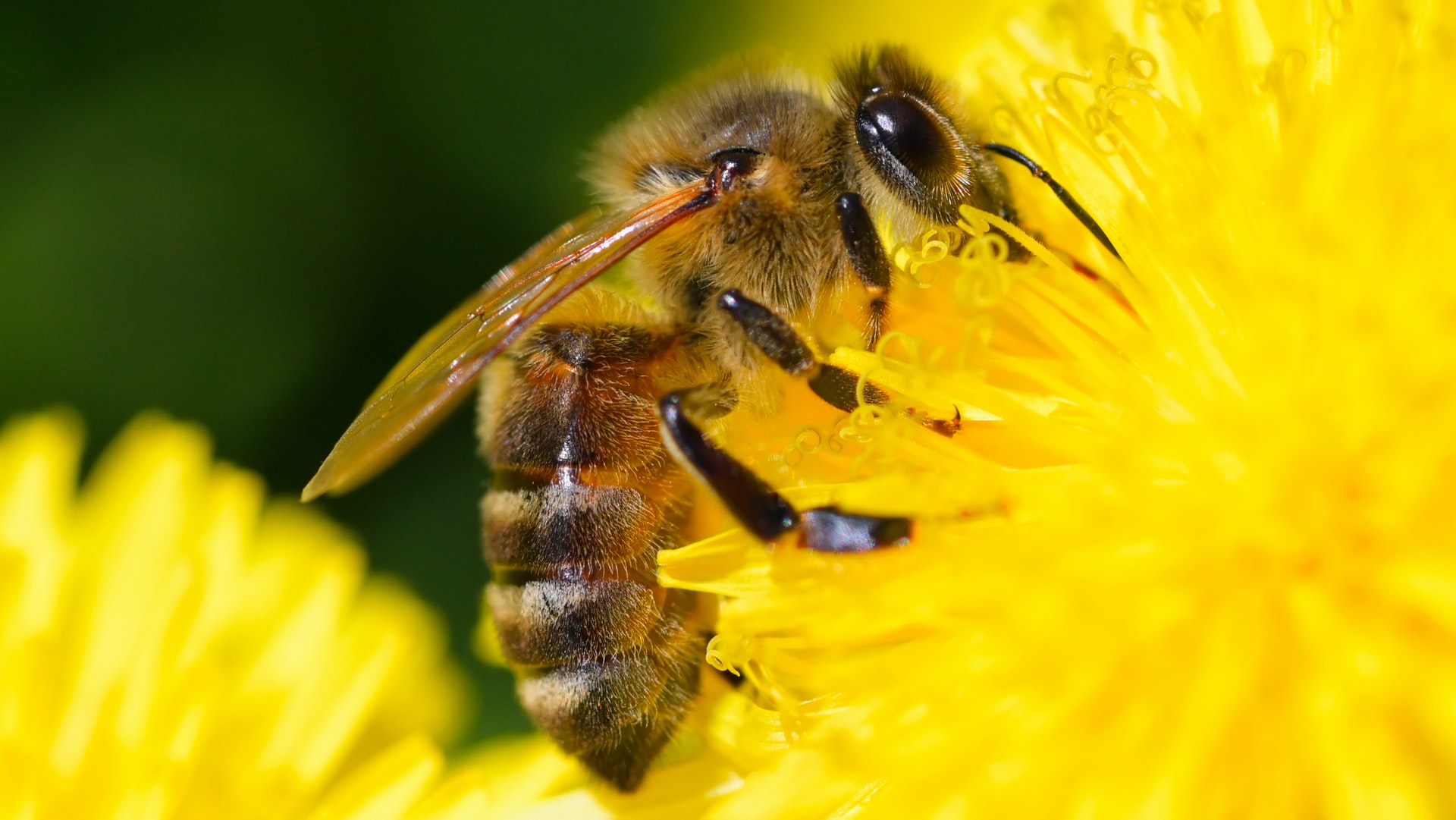How bees and nature-friendly farmers are helping each other
By Fiona Stainer | May 19, 2021
If you’ve ever walked in the British countryside in the summer, then the satisfying hum of bees from the hedgerows and grasses will be a familiar sound to you. However, that hum may be far quieter than it once was.
Bees are one of the most vital components of the world’s ecosystems but they face multiple threats. Habitat loss, climate change, toxic pesticides and disease have led to nearly one in 10 of Europe’s wild bee species facing extinction.
Bees are proven to be more efficient pollinators than other species, and research has shown that food pollinated by bees can be bigger and healthier in comparison to other pollination methods. In short, without bees we will not have the food we need to sustain us. This means it’s down to us to reverse this decline and ensure we’re creating and maintaining the habitats that bees need to flourish. So how do we do this?
The agriculture sector is one of the biggest emitters of CO2, the greenhouse gas (GHG) most responsible for the changes we are seeing in our climate today. Together with forestry and other land use, agriculture is responsible for just under 25% of all human-created GHG emissions. But it also has a vital role to play in helping us end this crisis, and create a safe, sustainable future without carbon pollution. One where we can provide a growing world population with fresh, healthy food grown in a sustainable soil ecosystem. This is where regenerative agriculture comes in.

The UK alone is home to around 270 species of bees.
There are a number of regenerative farming techniques that encourage pollinators. For example, letting hedges grow and planting wildflower plots at field margins increases the habitats available to pollinators such as bees and butterflies. This technique has proven a success for Stephen Honeywood, an arable farmer for Jordans Cereals from Suffolk. Honeywood has dedicated 12% of his land to wildlife and a key aim is to attract pollinators, including rare butterflies. His hedges are left to grow, and he plants a wild seed mix which benefits pollinating insects including solitary bees, bumblebees, butterflies and hover flies.
Another important technique involves prioritizing pollinators when it comes to crop choice. David Butler, a mixed farmer from Wiltshire, has devoted 8% of his crop area to wildlife habitats, and recent insect surveys have shown positive increases in species numbers. Flowering crops like spring beans depend on pollinators for their success, and by encouraging these species on the farm, Butler has seen yields and productivity increase.
Additionally, farmers such as Sally-Ann Spence, a mixed farmer from Oxfordshire, have found that adopting regenerative techniques has reduced the need for pesticide use on their farms. Spence has a nectar margin, pollinator strips, and 100 acres of grassland on her farm. These important habitats for pollinators have boosted populations of beneficial insects, which has meant that Spence has been able to reduce her use of chemicals that would ordinarily be used to fend off insects harmful to her crop – instead, other insects are doing this job for her.
It’s clear that when time and resources are dedicated to regenerative farming practices, they pay dividends, both for farmers and for the wildlife they are encouraging. In turn, a healthier ecosystem results in higher yields and productivity – a win-win situation for the farming sector.
The UK Government’s announcement of the Environmental Land Management scheme (ELMS) – which will reward environmental land management – is a positive step forward for the UK, but we still have a long way to go. Nevertheless, as the commitment to nature-friendly farming techniques increases, proponents of regenerative agriculture continue to look ahead to a future in which bees are not disappearing, but thriving.


